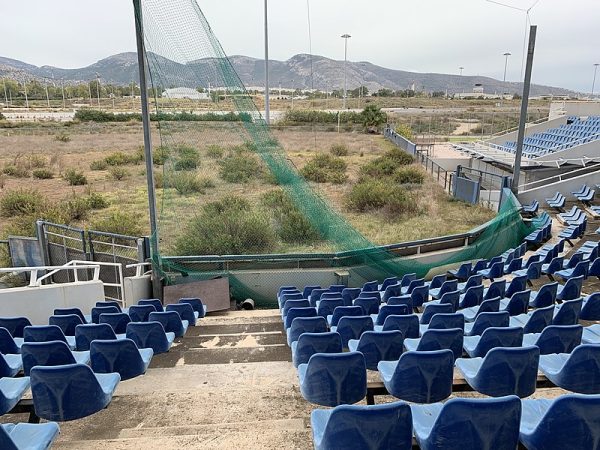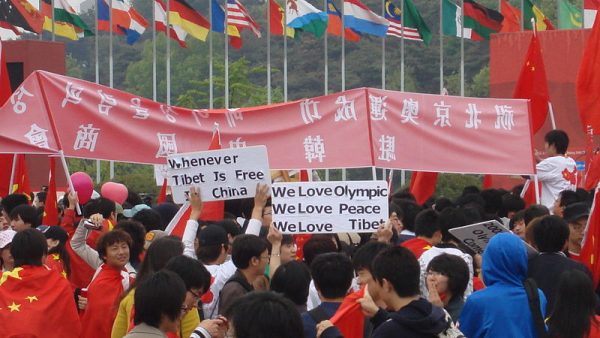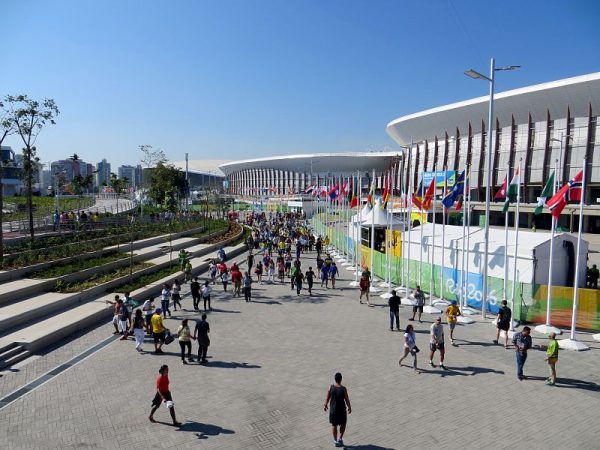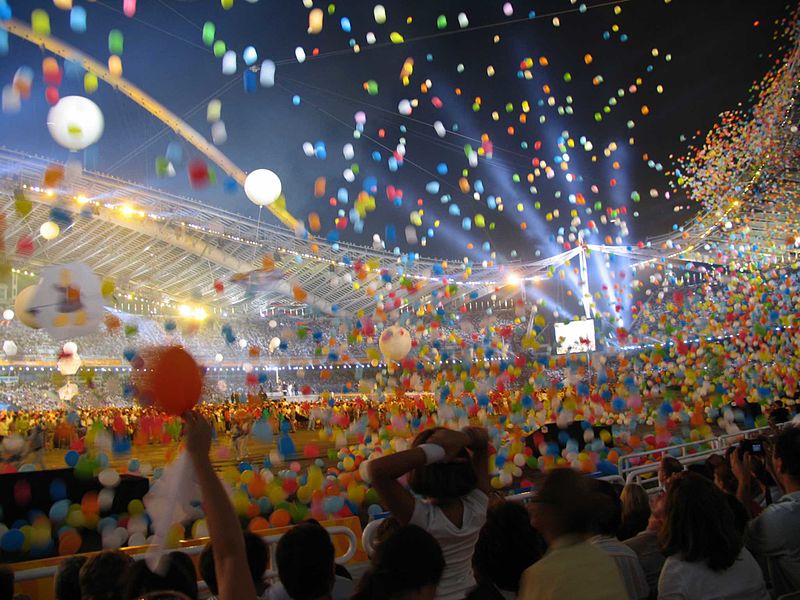The Olympics – an event so major, it hardly needs introduction. Every two years alternating between Winter and Summer Games, billions of eyes around the planet tune in to watch great feats of strength, agility, and general athleticism, as the world’s nations send their best athletes to compete for fame, prize, and national glory. A modern tradition based on an ancient one, the Olympics is the world’s penultimate sports test.
But more than athletics, in modern history, the Olympics has morphed into a financial and cultural powerhouse. Each hosting city spends billions of dollars each year to build numerous facilities – stadiums, pools, Olympic villages for athletes – on top of cleaning up the city and organizing it for an influx of hundreds of thousands of visitors.
Culturally, the Olympics put the city on the map. Major cities, like recents Rio and Beijing, get to show again why they are so important. Smaller cities, like recent Pyeongchang, South Korea and Sochi, Russia, get to put themselves on the map, and receive above-average support from their country.
So to review, the host country gets international spotlight and foreign money, and the best athletes from across the world get to prove their excellence. It all seems like a win-win, right?
Well, no.
An event of such grandeur and complexity cannot occur without problems. Particularly in recent history, the Olympics has struggled with a number of inequalities, corruption cases, environmental disasters and scandals. The International Olympic Committee (IOC) has been caught up in a number of controversies in its history, particularly involving bribery and leadership changes.
Undertaking the Olympics, as much benefit as it may bring to a country, comes with a large and growing list of drawbacks. For one, the cost – this summer’s Paris Olympics are expected to cost around 8.3 billion dollars, mostly into infrastructure projects. The cost is not covered by the IOC, in any part. This is money drawn from the nation’s budget.
And that infrastructure itself is often a problem. Being the most important athletics event in the world, the requirements and specifications for stadiums, pools, courts and more are all strict and expensive to follow, to ensure fairness. These facilities need to be enormous, with space needing to be cleared to fit them, not to mention housing that needs to be built near them. This produced situations such as this year’s Paris Aquatic Center going $120 million over budget.

And then what happens with that infrastructure? For most countries, the answer is decay and disuse. Olympic facilities of such size are almost always not needed after the masses of tourists leave the city, and usual life resumes. Rarely, such as with the Munich soccer stadiums, they are able to be reused. But most of the infrastructure is reclaimed by nature, and the money invested is going to waste right in front of the citizens’ eyes. Simply look up ‘abandoned Olympic sites’, and gawk at the hundreds of abandoned Olympic sites, rotting while the citizens reap no reward from supposed economic benefit of hosting. And this isn’t even mentioning carbon cost – the 2016 Rio Olympics produced a terrifying 3.6 million tonnes of carbon, mostly due to infrastructure.
Environmentally, the games are consistently a disaster for whatever place they find themselves in. Clearing out land, or course, is the major cause – but much of the problem also falls on the way the games have to manipulate the local environment to fit the conditions for the different sports and events. Skiing, surfing, golf and more all require extensive reforming of the land they occupy. And of course, there are wonderful instances like 2014’s Winter Olympics in Sochi, Russia, where the majority of the events were held in Russia’s most biodiverse national park. You can probably imagine how that went.
Corruption in the IOC remains a constant, however, particularly recently, corruption in the hosting country has been an issue. This issue became the most present at the 2016 Summer Olympics in Rio. In order to prepare for the games, the government forcibly evacuated thousands of lower class citizens from their homes, demolished them, and built stadiums on top, clearing out the southern part of the city where the games would be held in their majority. In the northern part of the city, home to the city’s poorer neighborhoods, but also where athletes and tourists flew in at Galeão International Airport, the government set up a large wall on both sides of the road to block international visitors from seeing the true state of Rio. Of course, there were exceptions – small gaps in the wall to show visitors spots where new schools had been built, attempting to make the northern areas look just as supported and rich as the south.
And of course, politics. One of the most pointed to issues, the inherent urge for nations to use the games as a platform to promote political ideologies has been present almost from the event’s inception. Going all the way back to the 1936 Summer Games, hosted in Berlin, where the Nazis secured major international wins by representing themselves as peace-loving (even despite major pro-Aryan propaganda all around the facilities), using the events as a way to secure political respect is a game never passed up on. During the Cold War, the Olympics often became a battle involving international bans and distrust, particularly surrounding the U.S.S.R. Games and the Yugoslavia Games.
These days, the conflict often comes with nations not allowing athletes of certain nationalities to enter, and grumblings from the international community when nations are chosen that have not acted with cordiality on the global stage. But it has the chance of erupting into serious feuds – such as the disaster that was the 2008 Olympic torch relay, resulting in the confrontation of Tibetan independence activists and the combined Chinese-IOC security forces – which can really damage international peace.

So it’s clear the Games have problems. A long, long, endless list of problems. But what is the solution? I would like to offer one today: let’s build a permanent Olympic city.
I propose that the greatest idea for benefitting the Games would be to remove them from international politics entirely, and place them on their own island. In this scenario, this island is either chosen from within a nation’s borders, such as a Greek island, or an island turned into international territory and governed by the IOC, with global support and monitoring from the UN and other organizations.
Having a permanent Olympic city would instantly remove the environmental concerns, at least at such a large scale – instead of tearing up a new region of a different country every 2 years, just establish one developed region of high-tech facilities. No longer will there be a worry about the conditions of the event, as they remain the same every year. For athletes, this is significantly better, as they know what they are preparing for.
Olympic infrastructure would have to be updated every now and again, of course, but it would be significantly less expensive and carbon-producing. And funding would not be as much of a worry. Instead of one country bearing the weight of financially supporting a multinational competition, all nations could have a higher entry fee, and the entire event would be supported by all nations.
Politically, a permanent site for the Olympics outside of the control of a country would reduce the political conflict of rival nations sending athletes to each other’s properties. While it would reduce the spotlight given to specific cities, I hardly doubt that would affect much – most Olympic host cities are already quite famous, and for those who aren’t, such as 2018’s Winter Games host of Pyeongchang, South Korea, very little increase in tourism post-games is ever noted.
So what’s stopping such a change from taking place? Well, for one, the IOC currently benefits financially from the extensive bidding process for host city, and even though it often ends up being a net financial loss for the host nation, the allure of running such a prestigious event is too much for most countries to turn down.
The more pressing issue is of location. While such a permanent Olympic city could be hosted within the borders of a current country, this would hardly reduce the political issues. What happens if the host country is convulsed with a crisis, or worse, a war? Moreso, which host country would be accepted by the international community? Europe is the most likely choice, but such a Western-centric choice would hardly be easy to pass with support from the developing world, which has recently gotten wins through the bidding system, as Brazil hosted the 2016 Olympics.
While finding an area or island that could be turned into an international zone for the Games would be the most optimal solution, finding such a country to do so would be exceptionally difficult. After all, what country would want to give up part of their territory? For this to work, there must be a deal struck between the country the land is being taken from and the IOC to ensure some sort of financial compensation each year in exchange for losing land. With an agreement like this, I believe that it is very possible that such a permanent Olympic community could be established.

The Olympics have become such a long-lasting event that they have reached the most fretful level for any tradition to reach – continuing unchanged for the sake of upholding tradition. But given the state of the Games, and considering the impact that they have on global culture and the city they take place in, it is high time that they be evaluated critically. And with a permanent Olympic island, we can solve the problems presented by the Games, and ensure their safe and equal functioning into the future and beyond.







